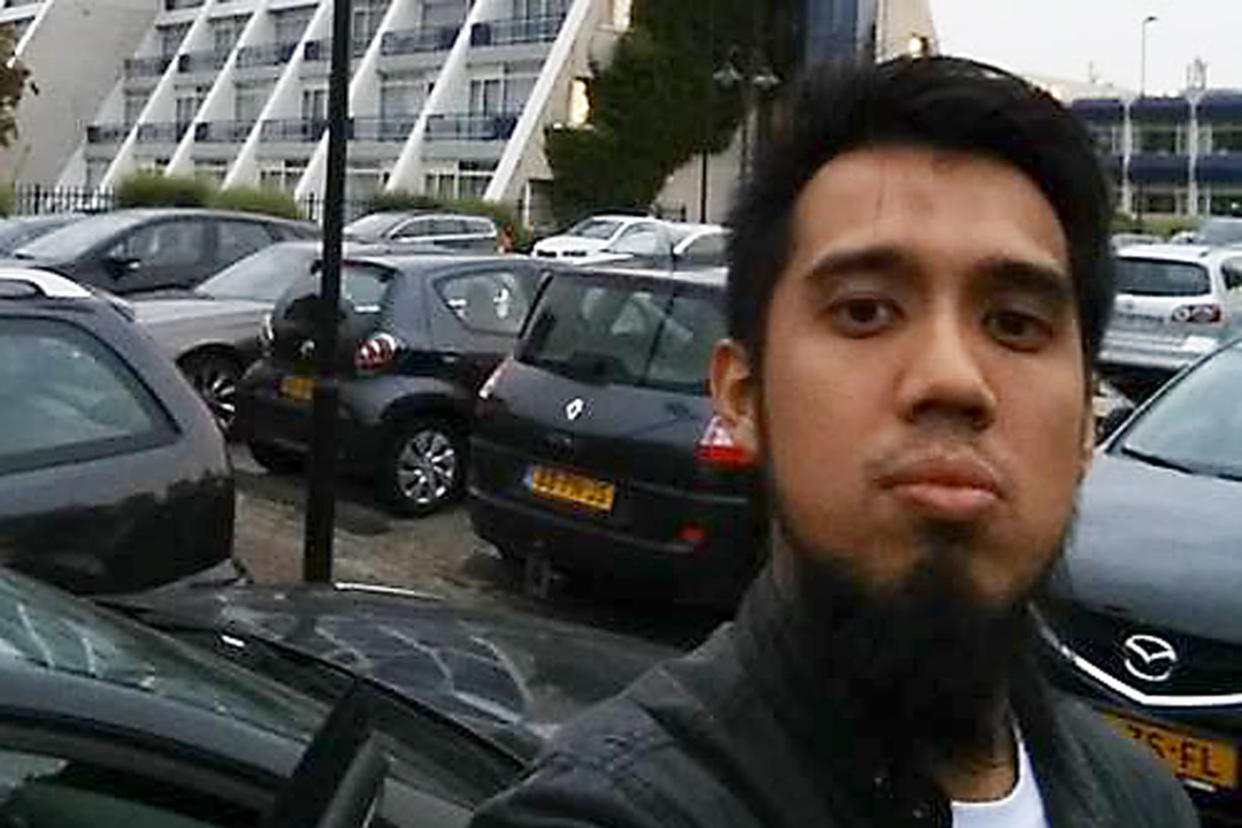'I don't recognise Singapore law': Man on trial for funding ISIS

SINGAPORE — A 36-year-old Singaporean man is on trial for allegedly providing funds to the Islamic State in Iraq and Syria (ISIS) terrorist group in the first case of its kind here under the Terrorism (Suppression of Financing) Act.
On Monday (13 January), Imran Kassim was brought to court blindfolded and with his ears muffled. Speaking in a British accent, he told the court that he was claiming trial as he did not recognise Singapore law, although he admitted to the act of transferring money to benefit ISIS.
“The only thing I can say I did do was I did the transfer and did it to benefit the Islamic State. I don’t recognise Singapore law so I can’t plead guilty to committing an offence,” he said.
Imran was charged in April last year with one count of providing $450 through the Western Union Global Network to an individual known as Mohamad Alsaied Alhmidan in Turkey for publication of ISIS propaganda on 31 October 2014.
When asked by District Judge Seah Chi-Ling for further clarification, Imran, who was unrepresented, maintained that he had made the transfer to benefit ISIS through supporting its publications. He also said that he did not recognise Singapore law and acknowledged only the authority of Islamic Syariah law.
According to his Facebook page, Imran studied political science at the National University of Singapore from 2004 to 2008 and had lived in Birmingham in the United Kingdom.
Prior to his arrest in July 2017, he was the managing director of logistics firm Novo Logistics.
Terrorism a ‘transnational scourge’: DPP
Before the start of the trial, Imran only asked why he was being handcuffed. DJ Seah replied that it was for security measures but later allowed for Imran’s hands to be handcuffed in front of him for him to take notes.
Deputy Public Prosecutor Nicholas Khoo said that Imran had transferred the monies to Turkey knowing that the funds would benefit ISIS by garnering more support and raising awareness for the extremist group.
“Terrorism is a transnational scourge and Singapore takes its duties as a member of the global community seriously in its unending fight against terrorism and, accordingly, terrorism financing,” said DPP Khoo.
The prosecution sought to admit three statements provided by Imran to a Commercial Affairs Department (CAD) officer on 3 May 2018, as well as a copy of his Western Union transaction receipt, application form, and three screenshots of his Facebook page which showed his pro-ISIS publications.
Calling two CAD officers to the stand, the prosecution also tendered United Nations counter-terrorism resolutions and a parliamentary statement by Home Affairs and Law Minister K Shanmugam condemning the terrorist actions of ISIS.
Cross-examining the case’s second investigation officer, Imran asked whether the Kurdish Militia and Israel were considered terrorist groups. The officer replied that the entities would be considered sanctioned if they were included in the UN Security Council resolutions.
The prosecution closed its case after calling on the CAD officers.
When called upon to give evidence, Imran said that he had nothing to say and had no evidence to tender, adding that he already admitted to the act of transferring the funds.
In his closing submissions, Imran said that he contributed the funds to highlight the “atrocities committed by the Western coalition against Muslims in (ISIS)”. He also stated that many things reported by the mainstream media about ISIS were “gross exaggerations” and fabricated.
The trial was wrapped up before noon, with six family members and friends speaking to Imran.
The case has been adjourned for the verdict to be given on Tuesday. If found guilty of financing a terrorist entity, Imran faces up to 10 years' jail, a fine of up to $500,000, or both.
Related story:
Two Singaporeans arrested under ISA for terror-related activities: MHA



